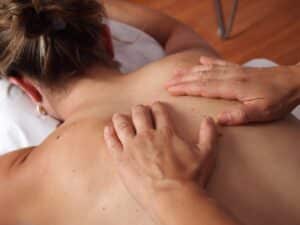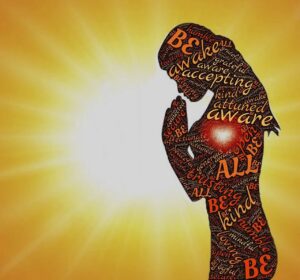Have you ever come across a person who has an addiction? Yes, the addiction, such as drug, alcohol, food, or other addiction. Addiction has a treatment, one of which is holistic addiction treatment. Holistic focus on the whole person. It solves an individual’s mental health, physical, emotional state, spiritual, or environmental factors. Don’t ignore any of the factors. Often people take a holistic approach to non-medical care. Non-medical individual care includes art therapy, yoga, mindfulness, meditation, massage therapy, breathing, and other methods. Each of these methods is designed to help those who want to work to overcome substance abuse. Let’s understand in detail Can holistic addiction treatment actually works and holistic addiction treatment in detail. Stay tuned till the end.
Can holistic addiction treatment actually work
Yes, Holistic addiction treatment actually works. It doesn’t only solve physical problems but mental, emotional, and spiritual issues. As a result, it changes the whole person. Also, holistic treatment is provided according to the individual addiction and how it affects them
According to one of the research on Evidence-Based Complementary and Alternative Medicine, the effects of acupuncture on opiate addiction are inconclusive. Additionally, one of the journals published in the American Board of Family Medicine found that seven out of eight published studies say that yoga provides positive results during pain, anxiety, or substance abuse.
Holistic therapy works because it helps build connections between inner self and outward relationships. It fills the gaps that traditional methods don’t consider. Also, these treatments are gaining popularity with time and become useful treatments for drug and alcohol addiction in rehabilitation programs due to their effectiveness.
Holistic addiction treatment
Holistic addiction treatment is personalized according to the person’s addiction. To understand the addiction of a person check their physical symptoms. Because physical symptoms play an important role in determining the type of addiction. A holistic approach is using a non-medical method for addiction recovery. It covers areas such as negative thoughts, emotional disturbances, nutritional deficiencies, spiritual development, and physical issues. Holistic treatment has different methods, such as traditional or non-traditional methods. Some non-traditional methods are as follows:
The non-traditional method of holistic addiction treatment.
The non-traditional holistic addiction treatment given depends on the client’s history and specific recovery needs. This therapy usually helps in reducing stress, processing trauma, reducing depression, finding purpose, and living a fulfilling life after the treatment. Let’s understand what non-traditional addiction programs offer as follows:
- Acupuncture
- Hypnosis
- Massage therapy
- Art therapy
- Yoga
- Mindfulness and meditation
- Nutrition therapy
- EMDR therapy
- Reiki
- Tai Chi
1. Acupuncture
Acupuncture originated in China. It is a method where single-use needles are inserted into specific points on the skin to stimulate the body’s healing systems and restore balance. Acupuncture treatment should be taken only with a professional because it is a valid treatment according to many medical insurance providers, so it covers the treatment.
2. Hypnosis
It is treating a person psychologically. Hypnosis therapy is a place where a person focuses on an individual’s soul purpose. Additionally, it helps in healing oneself, controlling, and keeping you in touch with your unconscious mind. During hypnosis therapy, the mind becomes receptive to ideas that align with your goals. It also works best after combining it with other traditional approaches.
3. Massage therapy

Massage therapy helps improve health. It is the method where your body is massaged to give you relaxation and reduce stress, pain, and anxiety. Additionally, it strengthens the weak immune system, which allows your body to fight disease in general. When it comes to particular addiction therapy provides relief to the brain and body. Whereas holistic approaches aim to treat the whole person, massage is a therapy to heal the person’s body’s naturalness and restore harmony.
4. Art therapy
According to NCBI research, 36.8% of treatment providers offered art therapy. It is a therapy that helps solve complex emotional landscapes with drawing and painting. It is a widely used method to understand child problems. These therapies allow people to express themselves through a non-verbal, creative way. Also, without any feelings of shame, and motivates individuals to share problems.
5. Yoga
Yoga is a therapy that focuses on the physical, emotional, and mental health of a person. The tools of yoga such as physical movements, mindfulness, meditation, and breathing exercises. It is recommended to wear comfortable clothes while doing yoga. Also, you need to do yoga for 30 to 90 minutes for treatment.
In yoga, Breathing exercises help in coping with stress and anxiety. Physical movements help in strengthening the body and mind. Additionally, meditation helps reduce anxiety and provides inner peace to the mind. This inner peace is invaluable when recovering from addiction since it helps reduce cravings for harmful abuse substances. Additionally, it allows individuals to live everyday life rather than rely on abused substances for pleasure and happiness.
6. Mindfulness and meditation
Meditation helps a person to bring their attention to the current moment, not to the future and the past. It reconnects with the present world and your own body. Additionally, it relaxes your body and mind so you learn to cope with daily activity stress without the use of drugs or alcohol. There are various forms of meditation, such as follows:
- Mindfulness: Mindfulness happens in a peaceful, and quiet place where you sit in a comfortable position. It focuses your attention on the present moment. When your mind relaxes, it allows thoughts to flow freely. AIso, helps in identifying your feelings and thoughts without any judgment.
- Breathing: The purpose of breathing exercises is to develop inner peace and calm the mind with eyes closed. When you are breathing concentrate on breathing as you exhale and inhale. Additionally, focus on your breath to relax your muscles.
- Moving meditation: You can practice moving meditation in a peaceful place such as a lake, garden, or forest. Focus on your movement, how you feel, and flow in the body. Also, pay attention to all things in the environment such as the sound of birds, or crashing waves.
7. Nutrition therapy

Eating nutritious food is essential for good health and lifestyle. In nutrition therapy, patients are taught how to make mindful decisions when consuming food. It provides education on food planning, portion control, and food label reading. With these therapies, patients reach their target weight and improve their overall health. Food like junk and drinking are not included in nutritious food, so avoid these types of food.
8. EMDR therapy
EMDR therapy is a non-traditional therapy founded by Francine Shapiro in 1988. During this therapy, the therapist asks patients to recall details of the traumatic event while focusing on the feeling at that moment. Because of this process, negative thoughts are replaced with positive ones. As a result, it improved well-being, mental health, and functions.
9. Reiki
Reiki is a Japanese healing technique.
It does not directly cure diseases. It is a method used to manage symptoms and improve well-being. In reiki, practitioners place their hands above or on the client’s body to free energy that is stuck during the trauma or stress.
10. Tai Chi
Tai Chi is useful for addiction recovery as it has physical and mental health benefits for addicted people. Also, it improves anxiety, depression symptoms, and quality of sleep. Additionally, these improvements decrease the chance of relapse in patients. The physical benefits are that it reduces the pain.
One of the studies in 2022 for drug-dependent women found that drug craving was reduced in patients who engaged in Tai Chi.
Traditional method for holistic addiction treatment
The different addictions provide different holistic addiction treatments depending on severity. Let’s understand traditional methods:
1. Inpatient treatment
The first level of rehab is recommended after medical detox from alcohol or drugs. In Inpatient treatment, patients live on-site for 24/7 hours. It is a safe space for individuals to discover the root of their addiction without having any stress of being vulnerable after detox. In this treatment, you become part of a therapeutic community, and the community supports you and encourages personal growth.
2. Outpatient programs
Outpatient programs of individual and group counseling help people understand themselves and overcome addiction. During the recovery treatment, the patient lives at home. As well as outpatient programs allow individuals to fulfill their personal and professional commitments during the treatments. The treatments last for 90 days, and the goal for patients is to find the root cause of their addiction. Also, know the ways to cope with addiction, overcome it and live a happy life.
3. Partial hospitalized program
These programs are suitable for people who cannot attend a residential treatment program. It is a program to treat substance abuse, and here patients live at home and commute to the center for seven days a week. The treatment is designed to access therapy, medication management, and other health services in one place.
4. Intensive outpatient programs
Intensive outpatient is a non-residential psychological treatment. It addresses mental disorders and substance abuse. It generally offers group therapy, which lasts 6-30 hours a week. The therapy allows the individual to participate in daily work like studies, jobs, or any other work.
5. Aftercare programs
Aftercare is any type of care that is provided continuously after you leave rehab. It is a plan to support someone in early recovery, prevent relapse, and help them to achieve goals. The aftercare plan includes interventions and resources to help a recovered person cope with stress and triggers. The aftercare plan depends on each person’s needs.
Your aftercare treatment plan will be made according to a situation, such as whether to find a house, employment or continued treatment. Also, it includes how long you will need the treatment.
Each of these methods is helpful for individuals as the plan is created personalized according to the needs, strengths, and recovery goals of the individual. The holistic approach helps in enhancing the patient’s overall health well-being and sustained recovery.
Benefits of Holistic Addiction Therapy
Can holistic addiction treatment actually work?
Yes, Holistic therapy changes the life of a person and brings excitement to life. The benefits of holistic addiction treatment vary from person to person. Let’s know the benefits in detail:
1. Self-esteem and identity
When a person is addicted to abuse substances it destroys a person’s self-worth and identity. The addiction gives feelings of failure, guilt, self-doubt, and shame. These emotions make a person question their self-worth which affects their relationships and futures. Here, holistic addiction treatment helps to heal and build self-esteem and identity. It encourages self-acceptance, self-improvement, and growth by connecting you with your deepest self.
2. Enhanced coping skills
Are you facing difficulties in coping with things because of addiction? Yes, then holistic addiction therapy will develop coping skills that will help you to overcome stress. Coping skills are essential to avoid drugs or alcohol. The coping skill develops with emotional regulation. The emotional regulation method of yoga and art therapy are important tools to develop coping skills and help in the recovery journey.
3. Provide individual treatment
Did the same holistic addiction treatment work for everyone? No, because everyone’s thoughts, emotions, situations, beliefs and addictions are different. Here, holistic addiction treatment makes a plan according to individual situations and physical, emotional, spiritual, and mental needs. Every patient’s needs and goal for taking holistic treatment are different. Furthermore, holistic treatments take care of every individual as a whole, it bring positive effects on physical and mental well-being. It is one of the best treatments for individuals.
4. Access to a variety of addiction treatment
Addiction recovery programs provide conventional treatments like counseling, psychoeducation, and medication therapies. All these therapies are effective but have limitations in offering and variety. At the same time, holistic addiction treatments are a mix of non-traditional therapies with traditional addiction therapies.
Holistic therapy lets you discover what works for you according to your needs. For example, Art therapy, music therapy, yoga, meditation, etc. Also, it offers some traditional therapy that works best for you.
5. Stress management skills

Stress is one of the reasons for emotional issues that lead to substance abuse. Holistic addiction therapies reduce stress and relax a person’s mind and body. For your relaxation, Incorporate techniques like deep breathing, muscle relaxation, or medication. Also, for stress reduction, engage in activities like nature walks, yoga, or listening to music. However, stress management includes relaxation and activities in daily routine and joining support groups.
6. Life skills
It is essential to learn life skills. Life skills such as physical, mental, and emotional well-being. Also, it includes effective communication, time management, problem-solving, resilience, empathy, and self-awareness. Developing these skills helps in making a beautiful life.
7. Spiritual connection
There is a difference between a spiritual connection and religion. Spiritual refers to connecting someone with themselves and believing in something more than the individual. It builds connections with others and the world. Due to addiction, the person loses the spiritual connection but with holistic therapy, the spiritual connection builds back again.
8. Long term solutions
Holistic therapy focuses on long-term solutions rather than short terms. It helps individuals develop sustainable strategies for managing their mental health and getting free from addiction. Holistic addiction therapy develops coping skills, incorporates self-care into daily life, and makes lifestyle changes that help in maintaining good mental health for the long term.
9. Focus on the whole person
One of the best benefits of holistic addiction treatment is that it focuses on the whole person. The therapist tries to understand the individual habits, lifestyle, relationships, spiritual health, and environment to identify the root cause of addiction. When they understand the root cause of addiction, they make a plan for a patient’s overall well-being.
Limitations of holistic addiction therapy
No standardization
One of the benefits of holistic addiction treatment is individualized planning. It has the downside that with the variety of treatments used, there is less standardization compared to traditional approaches. This makes it difficult for patients to understand which treatment should be chosen and right for their addiction issues.
Time commitment
Holistic treatments require your time commitment. Because in holistic therapy time investment is required in lifestyle changes and therapies compared to traditional treatments that focus on abuse substance use. The additional investment you make in yourself is worthy.
Pressure on self-healing
The holistic approach focuses on personal growth and development. As a result, it leads to an emphasis on self-healing because people feel pressure on themselves to fix it, which is overwhelming for them.
Expensive
Some of the holistic treatments that are incorporated and alternative therapies are not covered under the insurance. This makes holistic treatment more expensive for patients. However, the traditional treatment is covered under insurance.
Side effects
In holistic treatment, if there are supplements, then they interact with medications, both prescription and over-the-counter. However, some supplements provide side effects on the body.
Conclusion
Can holistic addiction treatment actually work?
Yes, it works because of research published by Evidence-Based Complementary and Alternative Medicine and the American Board of Family Medicine. Additionally, this holistic treatment recognizes that addiction is not because of a single reason but it is a complex interplay of physical, mental, and emotional factors. Holistic addiction treatment holds the potential to transform lives. There are two types of holistic addiction treatment: traditional and non-traditional methods. Traditional treatment includes inpatient, outpatient, partial hospitalization, intensive outpatient programs, and aftercare programs. Inpatient treatment took place after medical detox from drugs or alcohol. Outpatient programs help people understand themselves, and aftercare treatment is provided after the treatment is complete to take care of the person so the recovery continues for a long time.
A non-traditional approach includes acupuncture, art therapy, yoga, massage, meditation, breathing, EMDR therapy, reiki, nutrition therapy, and tai chi. According to a person’s needs, like their goal, situation, or interest, they choose the treatment methods for the recovery. Holistic addiction treatment has various benefits, such as enhanced coping skills, stress management, life skills, focus on the whole person, spiritual connections, and long-term solutions. This therapy helps to change lifestyles and encourages the consumption of nutritious food for good health and a beautiful life. The limitations of holistic addiction treatment are that it is expensive, needs time commitment, and the pressure of self-healing combined with medication has side effects.
Relevance is a New Jersey-based facility that specializes in treating drug addiction and mental health issues. Their approach to treatment is comprehensive, providing a variety of options not commonly found elsewhere, including holistic and mental health therapies. The facility offers a detox program under medical supervision, addressing the effects of withdrawal and any potential medical issues that may arise during the treatment and detox process.
FAQs- Holistic Addiction Treatment
1. Why is a holistic approach crucial in drug and alcohol abuse?
When you are using a holistic approach to drug and alcohol abuse, it takes you forward in life. It helps you with coping with things in life. For example, mediation helps in controlling your response. When meditation adds a holistic approach, it works as dialectical behavior therapy.
2. How to determine whether holistic treatment is effective for a person or not?
The best way to determine if a holistic approach is working for you or not is to pay attention to how you feel during the treatment. Has your mood or personality changed? If yes, then you are recovering from the treatment.
3. What are the types of non-traditional holistic therapy?
The types of non-traditional holistic therapy include hypnosis, medication, art therapy, Acupuncture, yoga, and massage.
4. What is a holistic treatment for drug addiction?
When you enter the treatment program, it looks like a rehabilitation facility. Here, you will meet counselors and other professionals. However, holistic therapy is given in a comfortable environment. Also, while detoxing a substance from the body a staff member will observe the patients. After detox, a patient will be involved in individual or group sessions with other people who share similar experiences. Additionally, while recovering, patients will learn how to make essential lifestyle changes to reduce the risk of relapse and improve their lives. While recovering you will be guided by qualified professionals.
5. Did holistic addiction treatment find the root cause of addiction?
A holistic addresses the root cause of addiction, while a non-holistic focus on the symptoms. Non-holistic approach is not sufficient for individuals who want to end the abuse of substances in their lives. Many factors influence addiction. For example, mental health, and trauma of the past because of childhood and relationships lead to substance abuse. Additionally, these genetic component makes individuals prone to addiction development.










